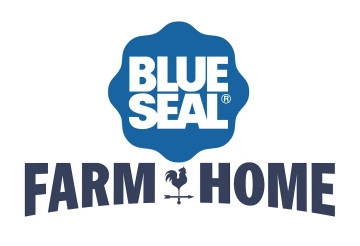{article.name} Monthly Blog Articles
WE DELIVER
Peterborough, NH: 603-924-6801 Brattleboro, VT: 802-254-8755 Walpole, NH: 603-756-9400 Hillsboro, NH: 603-464-3755 Milford, NH: 603-673-1669 Keene, NH: 603-357-5720Learning the Difference Between Treats and Poisons for Your Pets

- Share this:
- Share on Facebook
- Pin on Pinterest
- Tweet on Twitter
Every pet owner wants to give their pet a special treat now and then, either to celebrate a holiday or birthday, as a reward for a special trick or training or just because. The last thing that should happen because of that treat is discomfort, illness or death, but unless pet owners know what is poisonous to their pets, they could accidentally offer a toxic treat instead of a sweet surprise.
About Pet Digestion and Dietary Needs
Animals have evolved to need certain diets, and their diets don't necessarily coincide with what humans might need to eat healthy. Furthermore, altering a pet's diet too far away from their natural needs will not only deprive them of essential nutrition, but may impact their digestion and cause different problems, from diarrhea and constipation to impacted bowels, vomiting, flatulence, pain, dehydration, pancreatitis and digestive tract inflammation. These issues can make your pet acutely uncomfortable and can even lead to more severe illnesses or death – all from eating well-intentioned but actually toxic treats.
Treat or Toxic?
Knowing the best treats and most common poisons for your pets is a good way to start monitoring an animal's diet to be sure it doesn't ingest anything dangerous. While items not intended for consumption – chemical fertilizers, antifreeze, bleach, detergents, etc. – are obviously poisonous, some innocuous foods that may be favorites of pet owners can be toxic to their pets. The exact degree of toxicity can vary between species and may depend on the quantity of the food consumed as well as an individual animal's dietary needs, but it is better to know which foods should always be avoided.
Dogs
- Toxic: Chocolate, avocado, macadamia nuts, onions, raisins, grapes, cherries, raw dough, apricots, caffeine, currants, garlic, mushrooms, star fruit, salt
- Treats: Apples, cooked meat, peanut butter, applesauce, cheese, carrots, banana slices, watermelon, broccoli
Cats
- Toxic: Salt, apricots, chocolate, star fruit, avocado, raw dough, caffeine, onions, peach pits, cherries, mushrooms, garlic
- Treats: Catnip, green beans, berries, cooked carrots, cooked meat, tuna
Birds
- Toxic: Avocado, salt, chocolate, fruit pits or seeds, onions, mushrooms, dairy products, raw dry beans
- Treats: Strawberries, mango, blueberries, cooked or dry pasta, shredded wheat, dry banana chips, alfalfa sprouts, peppers
Reptiles
- Toxic: Fireflies, onions, garlic, large fruit seeds and pits, rhubarb leaves, avocado, potato greens, mushrooms
- Treats: Hay, hard-boiled eggs, tofu, earthworms, vegetables, fruits
When choosing treats for your pet, be aware of all ingredients of prepared foods – Thanksgiving turkey leftovers, for example, may seem like a good treat for cats and dogs, but the skin or gravy could have excessive amounts of salt, while stuffing may have onions, garlic or other unhealthy ingredients that can be dangerous for your pets.
When In Doubt
If you want to offer your pet a new or unusual treat, consult your veterinarian first. If your pet accidentally consumes an unknown or potentially toxic item, contact your veterinarian as soon as possible or take your pet to the vet's emergency room if they show signs of distress. If possible, have a label or food container available for your vet to see the exact ingredients, and note how much of the item your pet consumed and when it was eaten – these details can be critical for getting the best possible treatment.
It can be fun to offer your pet treats, but be sure you always offer safe ones!



Comments